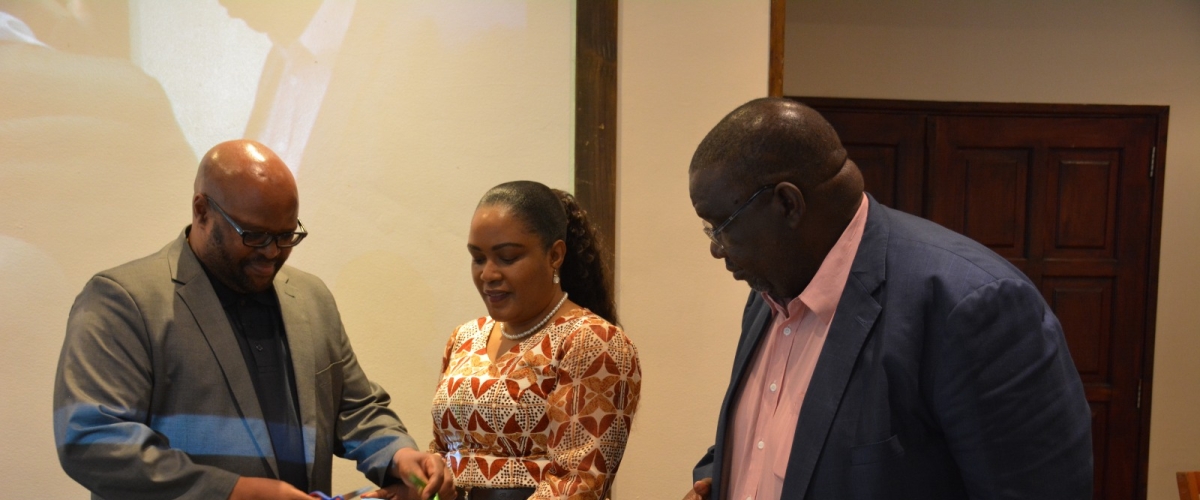
A significant stride towards sustainable and resilient agricultural practices was taken as the Conservation Agriculture Regional Working Group (CARWG) Meeting hosted the Climate Smart Agriculture (CSA) Handbook launched by the Centre for Coordination of Agricultural Research and Development for Southern Africa (CCARDESA).
The event, attended by agricultural experts, policymakers, and practitioners from across the region, marked a pivotal moment in the drive to enhance food security, promote soil health, and mitigate the impacts of climate change on smallholder farming communities.
CCARDESA’s Comprehensive Africa Agriculture Development Programme (CAADP) ex-Pillar IV (CAADP-XP4) Regional Programme Coordinator, Dr. Baitsi Podisi, noted that the CSA Handbook, a culmination of rigorous research and collaborative efforts, aims to equip farmers and Agricultural Extension Staff with the tools and knowledge necessary to embrace Climate Smart Agriculture.
Dr. Podisi explained that the launch of the CSA Handbook aligns perfectly with the global call for sustainable development, responsible environmental management, and the Malabo Declaration. “The Southern African region is particularly susceptible to the impacts of climate change, making the adoption of climate-smart farming practices paramount,” he alluded.
Dr. Podisi stated that CCARDESA’s initiative reinforces the commitment of regional stakeholders to proactively address these challenges and usher in a future where agriculture serves as a solution rather than a problem.
“As the pages of this handbook turn, in the realm of sustainable agriculture, the launch of the CCARDESA CSA Handbook stands as a beacon of hope, growth, and resilience for Southern Africa’s agricultural landscape,” he indicated.
The Handbook delves into soil management, crop rotation, and water conservation techniques tailored to the specific agroecological contexts of Southern Africa.
The launch of the handbook was hailed as a significant step towards empowering farmers with the necessary tools and information to make informed decisions about their farming practices.
By providing them with accessible and region-specific information, the handbook equips farmers to make informed decisions leading to increased crop yields, improved soil health, and enhanced resilience against climate change-induced shocks.
This handbook can be used as a reference material for front-line extension agents, environmentalists, and researchers in providing the best bet CSA solutions to the communities”.
The CSA Handbook was developed through assistance from the Accelerating the Impact of CGIAR Climate Research for Africa (AICCRA) project, funded by the World Bank, and the Global Climate Change Alliance+ (GCCA+) project, funded by the European Union through the SADC Secretariat.
The author is an Agriculture Information Officer at the National Agricultural Information Services. She is also CCARDESA Information, Communication, and Knowledge Management (ICKM) focal point person for Zambia





